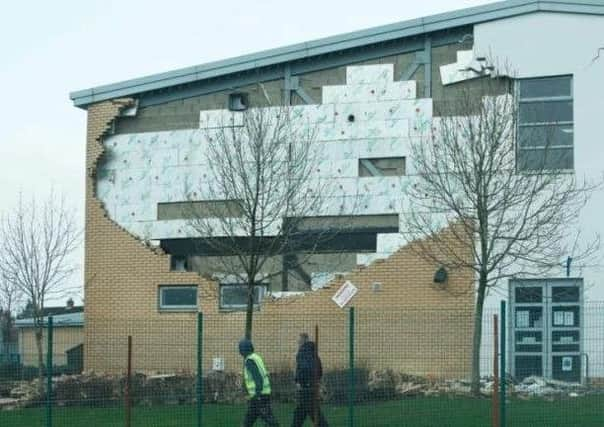Leader comment: Back to basics for building industry


But Scotland is hit by storms many times a year and we certainly do not expect our school estate to fall down every time there are adverse weather conditions.
The incident and subsequent investigations flushed out exactly what had happened during the construction process.
Advertisement
Hide AdAdvertisement
Hide AdThe aftermath caused more alarm and disruption as many schools across Scotland were forced to close while checks were carried out.
Today a report by MSPs blast the process by which a number of schools were built, branding Scotland’s construction industry an “embarrassment”.
Children could have been killed at any time by the short-cuts taken, speed of construction work and cost-cutting. Luck saved them.
The conclusions from the damning report need to be put in place as soon as possible.
One of the key recommendations is extremely straightforward – appointing a clerk of works for all building projects, who would have responsibility for monitoring each project, alerting contractors and sub-contractors to any shortfall.
Such a person, with years of experience, is a powerful entity on any building site. They know what needs to be done, and also know the tricks used to avoid detection for shoddy work. A clerk of works will know everything there is to know, from the very foundations chosen to the reason why a cheaper tile has been used on a roof.
Anyone involved in cutting corners in a public building project should not be involved in one again. Whether a clerk of works was involved or not, construction companies all know the potential consequences of cutting costs.
We should also have some reflection on speed. We place great pressure on getting projects completed on time, with penalties for those behind schedule. Realistic timetables should reduce “necessity” of taking risks.
However, at the heart of the debate is the fact that the construction industry lost a central part of its regulation process and that needs to be put back in place.